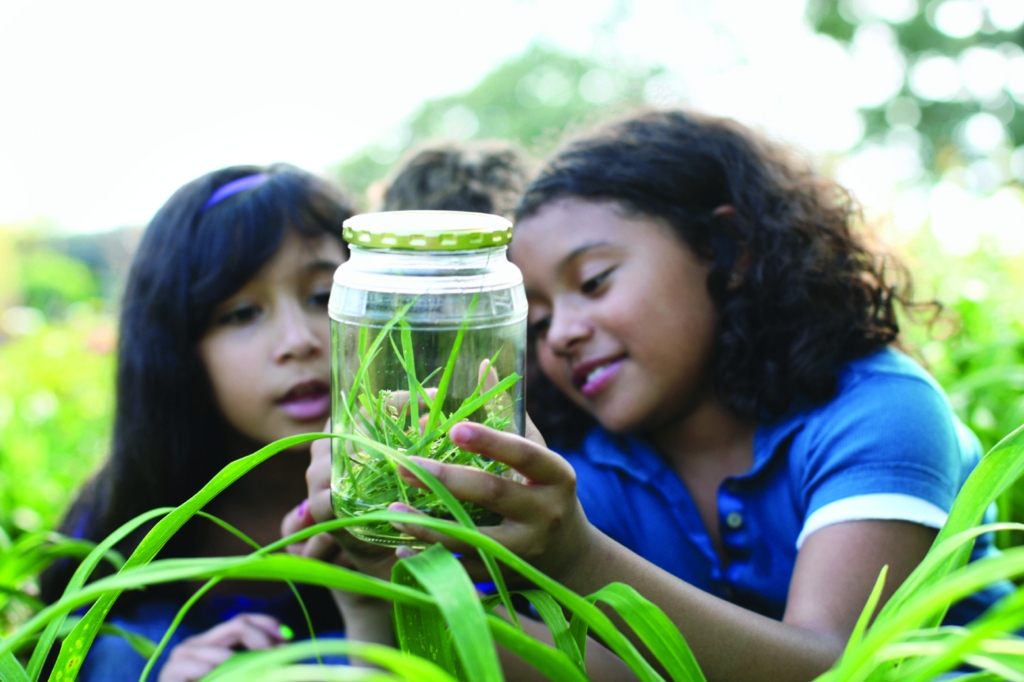It’s Called the Great Outdoors for a Reason
Our children belong outdoors. Richard Louv’s landmark book, Last Child in the Woods, illuminates a wealth of research that reveals what many parents already intuit. Children who spend ample periods of time outdoors in unscripted, improvised play are healthier and less stressed.

They exhibit greater cognitive ability, improved focus, and more self-control. They have greater self-esteem and are better problem solvers. In short, free play outdoors is vital to child development. So how can we as parents encourage this? Start by opening up the backdoor the way our parents did. Out there endless possibilities await them. There are clouds to be watched, bush houses to adopt, birds to encounter, trees to climb, and insects to discover. Begin exploring the great outdoors right in your own backyard. Our yards are home to a variety of plant and animal residents. If we encourage our children to explore and view these inhabitants as more than just a backdrop, their sense of wonder truly blossom
For instance, a close look at our lawn and gardens will reveal a secret world of tiny wildflowers. To the parent caretakers of the yard, these wildflowers are called weeds but through the eyes of a youngster, these become objects of fascination. Wood sorrel, scarlet pimpernel, buttercup, clover, dandelion and chickweed deserve some positive attention. They can be made into flower chains, incorporated into book marks or used to decorate a dollhouse. My youngest son, Emerson, likes to gather small bouquets of these flowers which we place in our dining room, in a small vase.
Look closer and you will find a variety of insects and their kin. Wearing exotic colors, our insect neighbors offer endless fascination. Emerson looks on the leaves of the shrubs, under stones and logs, in the garden, and in the compost. His favorites are earwigs (“That is just freaky, Dad!”), pill bugs, ladybugs and caterpillars. He is always excited to discover a new ant colony.
The world of nature stimulates our children’s sense of wonder. It provides an infinite array of opportunities to play. In our little third-of-an-acre lot, our six year old finds joy in discovering new living things. He is climbing trees and adopting bush houses. He monitors our birdhouses (ten of them!) and finds magic in our gardens. He makes compost and mud pies. He invents games and shares this world with others.
The great outdoors begins in the backyard. No fancy equipment is needed. Consider your children when you are landscaping – give them places to hide and trees to climb and grow with. Plant a butterfly garden and grow vegetables. Create bird habitats and build birdhouses.
Take walks through your neighborhood and community, and explore your local parks. There is no greater encouragement than example. Take responsibility for establishing a healthy relationship with the environment. It will enhance your child’s personal development and create a sense of stewardship for this wonderful planet we live on.
Jeff Hoagland is the Education Director at the Stony Brook- Millstone Watershed Association in Hopewell Township. Jeff enjoys sharing the outdoors with his son Emerson (age 6) and his three older children, Sydney (age 14), Zach (age 17) and Max (age 18). You can visit the Watershed Association's Buttinger Nature Center on their 860-acre Nature Reserve or online at www.thewatershed.org.

















